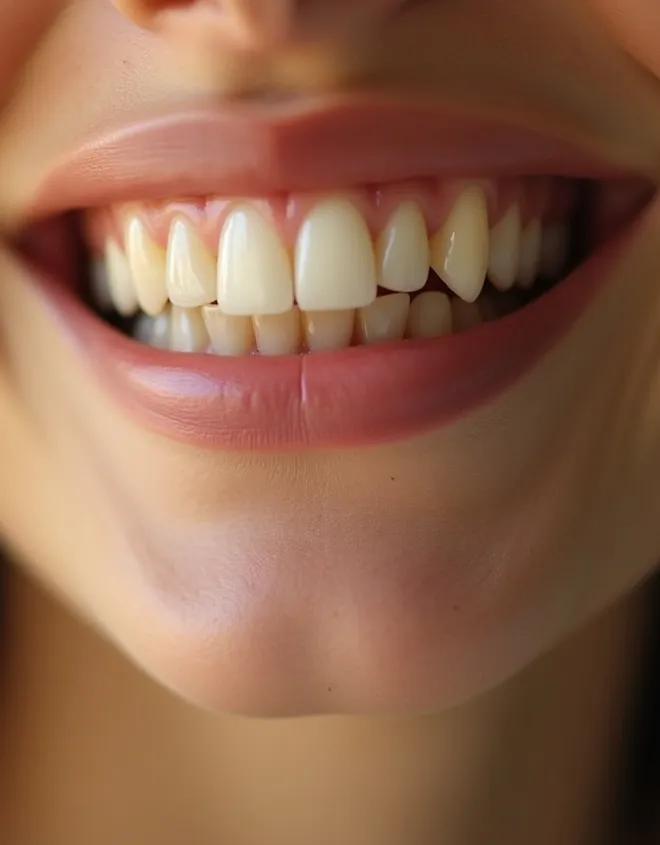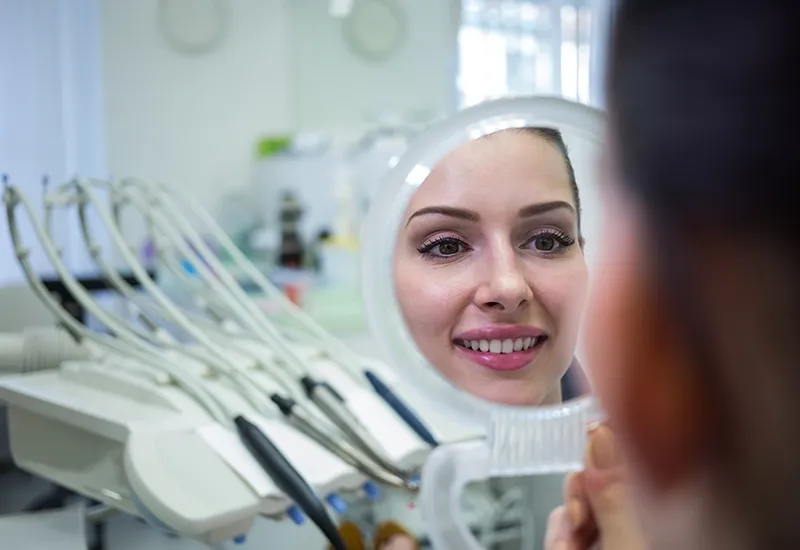Top 10 Reasons to Straighten Your Teeth Beyond Just a Better Smile
by Dr. Labeeb
14 October 2025

Oral Hygiene Improvement
One of the most significant orthodontic health benefits is improved hygiene. Misaligned or overlapping teeth create tight, hard to reach spaces that trap food particles and plaque. Over time, this buildup can lead to crooked teeth health issues such as gum inflammation, tooth decay, and bad breath. Straight teeth, in contrast, make brushing and flossing far more effective, reducing the risk of oral infections.
Studies published in the Journal of Clinical Orthodontics emphasize that patients who undergo alignment correction show noticeable improvements in oral cleanliness. In simple terms, the straighter your teeth, the easier it is to keep your mouth healthy. So, if you’ve ever wondered, does straightening teeth improve health? The answer is a resounding yes.

Jaw Alignment and Facial Balance
The relationship between your teeth and jaw is deeply interconnected. Crooked or misaligned teeth can lead to uneven jaw positioning, resulting in discomfort, headaches, or facial asymmetry. Properly aligned teeth support the jaw in its natural position, ensuring balanced movement during chewing and speaking.
This alignment also enhances overall facial structure, contributing to a harmonious appearance without altering natural features. Jaw alignment improvements are among the lesser known medical benefits of straight teeth, but they contribute immensely to comfort and posture over time.
Enhanced Confidence Through Health
Confidence often grows from comfort. Straight teeth don’t just transform a smile they improve how people eat, speak, and feel daily. Knowing your teeth are healthy and functioning well contributes to an authentic confidence that goes beyond appearance. The long term dental health advantages of alignment provide lasting peace of mind, ensuring your smile remains strong and natural.
Ultimately, the reasons to straighten teeth come down to quality of life. Whether you’re seeking improved hygiene, better function, or healthier gums, the alignment of your teeth plays a central role in maintaining oral and overall wellbeing.
Improved Digestion
Straight teeth can aid digestion by making chewing more effective. Properly aligned teeth break down food more thoroughly, allowing enzymes in saliva to begin the digestive process efficiently. In contrast, misaligned teeth may leave food inadequately chewed, leading to potential digestive discomfort.
Though not always immediately noticeable, this connection between oral alignment and digestive health underscores why the benefits of straight teeth go far beyond appearance. Better chewing efficiency enhances nutrient absorption and supports overall wellness.
More Than Just Cosmetic Alignment
When people think about orthodontic treatments, they often associate them with aesthetics achieving that picture-perfect smile. However, the benefits of straight teeth extend far beyond appearance. Proper teeth alignment advantages reach into areas of oral health, speech, function, and even long-term wellbeing. The American Association of Orthodontists (AAO) highlights that tooth alignment plays a crucial role in how effectively we bite, chew, and maintain oral hygiene.
For many, the question remains: why should I straighten my teeth? The answer lies in understanding that alignment affects more than self-confidence. Crooked or overcrowded teeth may lead to gum disease prevention challenges, jaw alignment problems, and even difficulties with speech or digestion. Straightening your teeth is, therefore, not just a cosmetic investmentit’s a health decision that influences daily life and long-term comfort.

Bite Correction Benefits
An uneven bite can cause more problems than people often realize. Misaligned teeth can result in difficulty chewing, speech strain, or even discomfort when biting down. Straightening your teeth supports better bite correction benefits, ensuring that your upper and lower teeth fit together properly.
Proper bite alignment helps distribute chewing forces evenly, preventing unnecessary strain on certain teeth or jaw joints. This balance can significantly reduce the risk of jaw alignment issues or temporomandibular discomfort (commonly known as TMJ problems). In essence, orthodontic treatment is not just about looks it’s about improving function and balance across the entire mouth.
Gum Disease Prevention
Healthy gums depend heavily on proper tooth positioning. When teeth are crooked or overcrowded, they create overlapping areas where bacteria thrive. Over time, this can lead to gum inflammation or periodontal disease. Straight teeth, by contrast, sit in a natural and balanced position that allows the gums to fit more securely around each tooth, offering stronger protection against bacterial invasion.
This connection between alignment and gum disease prevention has been well documented in orthodontic research. Aligned teeth promote healthier gum tissue and reduce the chances of chronic gum conditions. The reasons to straighten teeth are therefore as much about preventing future oral diseases as they are about creating a symmetrical smile.
Tooth Wear Reduction
Uneven teeth often lead to irregular contact during chewing or grinding. Over time, this results in premature enamel wear and potential chipping. Straight teeth promote even pressure distribution, preventing excessive damage to individual teeth. The teeth alignment advantages here are both functional and preventive maintaining the integrity of the enamel helps preserve natural teeth for many years.
Proper alignment also reduces the risk of dental restorations failing early. While it may seem minor, reducing tooth wear reduction through straightening can have a major impact on your overall long term dental health.
Improved Speech and Pronunciation
Few realize how much tooth position affects speech. Misalignment, gaps, or crowding can cause subtle lisping, slurring, or mispronunciation of certain sounds. Correcting alignment leads to speech improvement, allowing smoother tongue movement and clearer articulation.
When teeth are correctly aligned, they guide the tongue naturally during speaking, improving verbal precision and confidence. This makes orthodontic treatment beneficial not only for oral function but also for communication benefit often overlooked when people ask, how can braces help more than looks?

“A dental crown is more than restoration; it’s a lasting investment in strength, comfort, and confidence.”
Dental Aesthetics vs. Function
When comparing dental aesthetics vs. function, it becomes clear that the two are deeply linked. Straight teeth not only enhance appearance but also create a foundation for healthier oral mechanics. The balance between aesthetics and functionality ensures long lasting results.
Aligners and braces, whether Invisalign, Damon Braces, or Clear Correct, all work toward achieving optimal harmony between form and function. While each system offers unique techniques, the core purpose remains the same: improving oral health through precision alignment.
So, if you’ve ever asked, is Invisalign only for cosmetic reasons?, the answer is no it serves both aesthetic and functional goals, providing measurable orthodontic health benefits.
Conclusion
Straightening your teeth is an essential step toward maintaining not only an attractive smile but also a healthier, more balanced life. From bite correction benefits and gum disease prevention to speech improvement and tooth wear reduction, the impact of alignment extends well beyond what meets the eye.
If you’ve ever wondered, why straighten teeth or are there medical benefits of straight teeth, the evidence makes it clear: properly aligned teeth contribute to every aspect of oral function, from hygiene to comfort.
Take the step toward understanding your own alignment and explore safe, professional options that suit your needs. Investing in the health of your smile today means preserving its strength, beauty, and function for the future.
Resource:
Share This:
Disclaimer
*This media/content or any other on this website does not prescribe, recommend, or prevent any treatment or procedure. Therefore, we highly recommend that you get the advice of a qualified dentist or other medical practitioners regarding your specific dental condition. *

